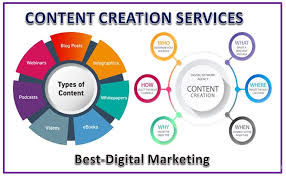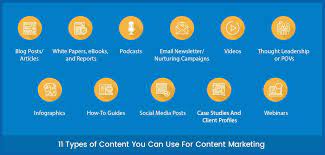Unleashing Creativity with Adobe Content Creator: A Game-Changer for Digital Design
The Power of Adobe Content Creator
Adobe Content Creator has revolutionised the way content is created and shared across various platforms. With its user-friendly interface and powerful features, Adobe Content Creator has become the go-to tool for professionals and amateurs alike.
One of the key strengths of Adobe Content Creator is its versatility. Whether you are creating stunning graphics, engaging videos, interactive websites, or captivating social media posts, Adobe Content Creator provides all the tools you need in one integrated platform.
With a wide range of templates, fonts, colours, and effects to choose from, Adobe Content Creator allows users to unleash their creativity and bring their ideas to life. The intuitive design interface makes it easy for users to customise their content and achieve professional results without the need for extensive design skills.
Another standout feature of Adobe Content Creator is its seamless integration with other Adobe products such as Photoshop, Illustrator, and Premiere Pro. This integration enables users to streamline their workflow and transfer assets between different applications with ease.
Furthermore, Adobe Content Creator offers cloud storage options, allowing users to access their projects from anywhere and collaborate with team members in real-time. This flexibility ensures that projects can be completed efficiently and on schedule.
In conclusion, Adobe Content Creator is a game-changer in the world of content creation. Its innovative features, user-friendly interface, and seamless integration make it an indispensable tool for anyone looking to create high-quality content across various platforms. Whether you are a seasoned professional or a novice creator, Adobe Content Creator empowers you to bring your ideas to life in ways you never thought possible.
Eight Advantages of Adobe Content Creator: Empowering Creativity and Collaboration
- 1. Versatile tool for creating graphics, videos, websites, and social media content.
- 2. User-friendly interface suitable for professionals and beginners.
- 3. Extensive library of templates, fonts, colours, and effects to enhance creativity.
- 4. Seamless integration with other Adobe products like Photoshop and Premiere Pro.
- 5. Cloud storage options for easy access to projects from anywhere.
- 6. Real-time collaboration features for team projects.
- 7. Streamlined workflow for efficient project completion.
- 8. Empowers users to produce high-quality professional content without extensive design skills.
Challenges Faced by Adobe Content Creators: Navigating Costs, Compatibility, and Complexity
- Steep learning curve for beginners due to the complexity of features
- Subscription-based model may be costly for some users in the long term
- Limited compatibility with certain file formats and external plugins
- Occasional software glitches and bugs that can disrupt workflow
- High system requirements, demanding powerful hardware for optimal performance
- Customer support response times can be slow during peak periods
1. Versatile tool for creating graphics, videos, websites, and social media content.
Adobe Content Creator stands out as a versatile tool that caters to a wide range of creative needs, making it a go-to choice for professionals and amateurs alike. With its diverse capabilities, users can effortlessly create stunning graphics, engaging videos, interactive websites, and captivating social media content all within one integrated platform. This versatility not only saves time and effort but also allows users to explore their creativity across different mediums without the need for multiple tools or applications. Adobe Content Creator’s ability to support various types of content creation makes it an invaluable asset for individuals and businesses looking to produce high-quality visuals and multimedia content efficiently.
2. User-friendly interface suitable for professionals and beginners.
Adobe Content Creator stands out with its user-friendly interface that caters to both professionals and beginners in the field of content creation. The intuitive design of the platform makes it easy for users to navigate through its features, regardless of their level of expertise. Professionals appreciate the efficiency and advanced tools available, while beginners find the interface welcoming and accessible, allowing them to quickly grasp the basics of content creation. This versatility in usability ensures that Adobe Content Creator is a valuable tool for individuals at all skill levels looking to produce high-quality content effectively.
3. Extensive library of templates, fonts, colours, and effects to enhance creativity.
Adobe Content Creator offers an extensive library of templates, fonts, colours, and effects that serve as a treasure trove for enhancing creativity. This vast selection provides users with endless possibilities to experiment, customise, and elevate their content creation process. By having access to a diverse range of design elements at their fingertips, users can easily explore different styles and aesthetics to bring their ideas to life in unique and engaging ways. The abundance of options within Adobe Content Creator empowers users to unleash their creativity and produce visually stunning content that resonates with their audience.
4. Seamless integration with other Adobe products like Photoshop and Premiere Pro.
One of the standout advantages of Adobe Content Creator is its seamless integration with other Adobe products such as Photoshop and Premiere Pro. This feature allows users to effortlessly transfer assets between different applications, streamlining their workflow and enhancing productivity. By leveraging the power of this integration, users can work more efficiently, maintain consistency across their projects, and take full advantage of the advanced capabilities offered by each Adobe tool. The seamless connectivity between Adobe Content Creator and other Adobe products ensures a smooth creative process and enables users to unleash their full potential in content creation.
5. Cloud storage options for easy access to projects from anywhere.
One significant advantage of Adobe Content Creator is its cloud storage options, which allow users to access their projects from anywhere with an internet connection. This feature ensures seamless collaboration and flexibility, as users can work on their projects on-the-go or share them with team members in real-time. By utilising cloud storage, Adobe Content Creator enhances productivity and convenience, enabling users to stay connected and creative no matter where they are located.
6. Real-time collaboration features for team projects.
Adobe Content Creator offers a valuable pro with its real-time collaboration features for team projects. This functionality enables team members to work together seamlessly, regardless of their physical location. By allowing multiple users to edit and review content simultaneously, Adobe Content Creator streamlines the workflow and enhances productivity. Team members can provide feedback, make edits, and track changes in real-time, ensuring that projects are completed efficiently and with precision. The real-time collaboration feature promotes effective communication and teamwork, ultimately leading to the successful delivery of high-quality content within deadlines.
7. Streamlined workflow for efficient project completion.
Adobe Content Creator offers a streamlined workflow that ensures efficient project completion. By providing seamless integration with other Adobe products and cloud storage options, users can easily access their projects from anywhere and collaborate with team members in real-time. This feature enables smooth transfer of assets between different applications, saving time and effort in the content creation process. With Adobe Content Creator, projects can be completed more effectively and on schedule, allowing users to focus on creating high-quality content without unnecessary delays or complications.
8. Empowers users to produce high-quality professional content without extensive design skills.
Adobe Content Creator stands out as a powerful tool that empowers users to produce high-quality professional content even without extensive design skills. Its intuitive interface and wide range of templates, fonts, colours, and effects allow users to unleash their creativity and achieve impressive results. By providing the necessary tools and resources within one integrated platform, Adobe Content Creator enables individuals to create visually appealing graphics, engaging videos, interactive websites, and captivating social media posts with ease. This accessibility and user-friendliness make Adobe Content Creator a valuable asset for both seasoned professionals and beginners looking to elevate their content creation game.
Steep learning curve for beginners due to the complexity of features
One notable downside of Adobe Content Creator is the steep learning curve that beginners may encounter. The complexity of its features can be overwhelming for those who are new to the platform, requiring a significant investment of time and effort to master. Navigating through the various tools and functionalities may prove challenging for novices, potentially leading to frustration and slower progress in content creation. As a result, beginners may find themselves struggling to fully utilise the capabilities of Adobe Content Creator until they have gained a sufficient level of proficiency through practice and exploration.
Subscription-based model may be costly for some users in the long term
One potential drawback of Adobe Content Creator is its subscription-based model, which may prove costly for some users in the long term. While the software offers a wide range of powerful features and tools, the recurring subscription fees can add up over time, especially for individuals or small businesses on a tight budget. This ongoing financial commitment may deter some users from fully utilising the platform or force them to seek alternative, more cost-effective solutions for their content creation needs. It is important for users to carefully consider their budget and usage requirements before committing to a subscription plan to ensure that they are getting the most value out of their investment in Adobe Content Creator.
Limited compatibility with certain file formats and external plugins
One notable drawback of Adobe Content Creator is its limited compatibility with certain file formats and external plugins. This restriction can be frustrating for users who rely on specific file types or plugins for their workflow. The inability to seamlessly work with all file formats or integrate external plugins may hinder the creative process and limit the flexibility of users who require access to a wider range of tools and resources. This limitation could potentially lead to inefficiencies in the content creation process and may require users to find workarounds or alternative solutions to achieve their desired outcomes.
Occasional software glitches and bugs that can disrupt workflow
Occasional software glitches and bugs in Adobe Content Creator can pose a significant challenge for users, disrupting their workflow and causing frustration. These unexpected technical issues may lead to delays in project completion, loss of work progress, and overall inefficiencies in the creative process. Dealing with software glitches can be time-consuming and may require troubleshooting or seeking assistance from technical support, diverting attention away from the actual content creation tasks. It is essential for users to stay vigilant and prepared to address these disruptions promptly to minimise their impact on productivity and project timelines.
High system requirements, demanding powerful hardware for optimal performance
One significant drawback of Adobe Content Creator is its high system requirements, necessitating powerful hardware for optimal performance. This can be a barrier for users with older or less advanced devices, as they may experience lagging, slow rendering times, or even crashes while using the software. The need for robust hardware can also result in additional costs for users who must upgrade their systems to meet the software’s demands. Overall, the high system requirements of Adobe Content Creator may limit accessibility and usability for some individuals, posing a challenge for those looking to utilise the software effectively.
Customer support response times can be slow during peak periods
During peak periods, one notable downside of Adobe Content Creator is the potential for slow customer support response times. This delay in receiving assistance can be frustrating for users who require immediate help or troubleshooting solutions. It may lead to disruptions in workflow and hinder timely completion of projects. While Adobe Content Creator offers a range of powerful features and tools, the slower customer support response times during busy periods can be a drawback for users seeking quick resolutions to their queries or issues.





